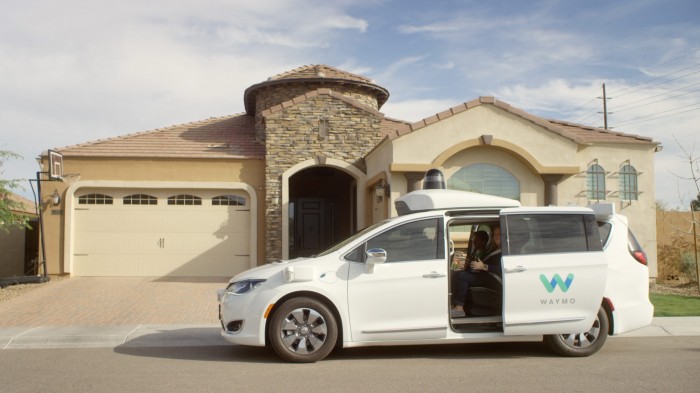Waymo Has Invited the Public to Hop Into Its Self-Driving Cars

Want to be one of the first people in America to ride in a self-driving car? Time to pack up and move to Phoenix.
Waymo—or, the company formerly known as Google’s self-driving car project—announced Tuesday that it plans to sign up hundreds of households living in and around the Phoenix, Arizona, area for a trial that will give them free, on-demand access to self-driving cars.
“Rather than offering people one or two rides, the goal of this program is to give participants access to our fleet every day, at any time, to go anywhere within an area that’s about twice the size of San Francisco,” John Krafcik, CEO of Waymo, wrote in a post on Medium.
The fact that Krafcik outlined how much of the greater Phoenix area will be open to riders is significant, suggesting that Waymo has mapped it in great detail and is confident that its cars will perform well there. This is similar to the approach Uber took when it launched its self-driving taxi program in Pittsburgh last year.
Uber’s Pittsburgh experiment showcased a technology that was a long way from self-sufficient (see “What to Know Before You Get In a Self-driving Car”), and since then the ride-hailing giant’s autonomous vehicle operations have had a rough ride—including being accused by Waymo of stealing its lidar technology.
Waymo, meanwhile, appears to believe its fleet of self-driving Chrysler Pacifica Hybrid minivans and Lexus RX450h SUVs is up to the challenge of ferrying families to and from work, soccer practice, and on errands. While the company makes clear that each car will come with a human test driver, Krafcik said the purpose of the trial is to learn more about how people use Waymo's vehicles—where they go with them, how they interact with them during rides, and so on.
This could be a sign that the technology is maturing to the point that Waymo is becoming more concerned with how to make an actual business out of its cars (which was, after all, the point of spinning the company out of Google in the first place). There is also plenty of pressure from a growing list of competitors to keep pushing forward.
Regardless of the motivation, the trial is likely to provide a trove of data on what regular people do with autonomous vehicles when given the opportunity. And if Waymo’s years of experience in testing self-driving cars is any indication, there are bound to be a lot of unexpected results.
(Read more: The Verge, Waymo blog, “What to Know Before You Get in a Self-driving Car,” “Are Autonomous Cars Ready to Go It Alone?”)
Keep Reading
Most Popular
Large language models can do jaw-dropping things. But nobody knows exactly why.
And that's a problem. Figuring it out is one of the biggest scientific puzzles of our time and a crucial step towards controlling more powerful future models.
The problem with plug-in hybrids? Their drivers.
Plug-in hybrids are often sold as a transition to EVs, but new data from Europe shows we’re still underestimating the emissions they produce.
Google DeepMind’s new generative model makes Super Mario–like games from scratch
Genie learns how to control games by watching hours and hours of video. It could help train next-gen robots too.
How scientists traced a mysterious covid case back to six toilets
When wastewater surveillance turns into a hunt for a single infected individual, the ethics get tricky.
Stay connected
Get the latest updates from
MIT Technology Review
Discover special offers, top stories, upcoming events, and more.